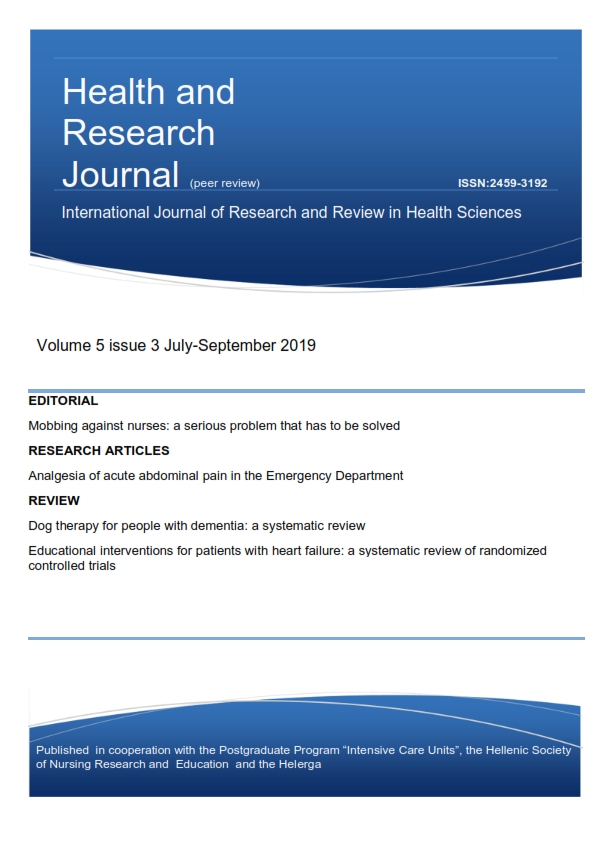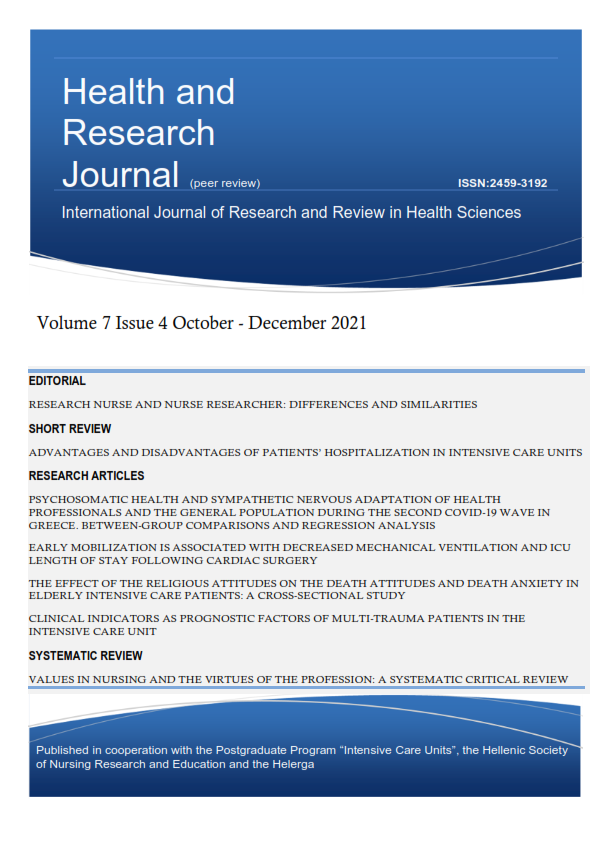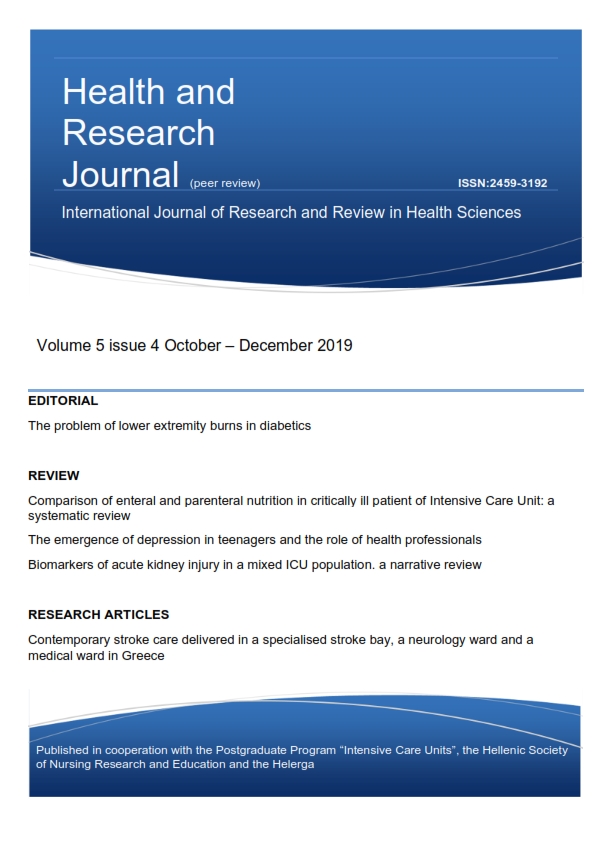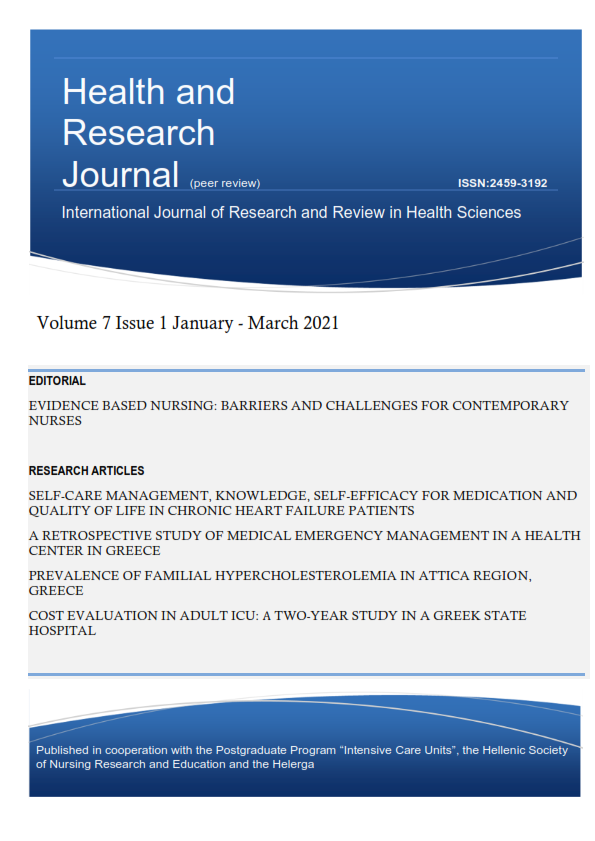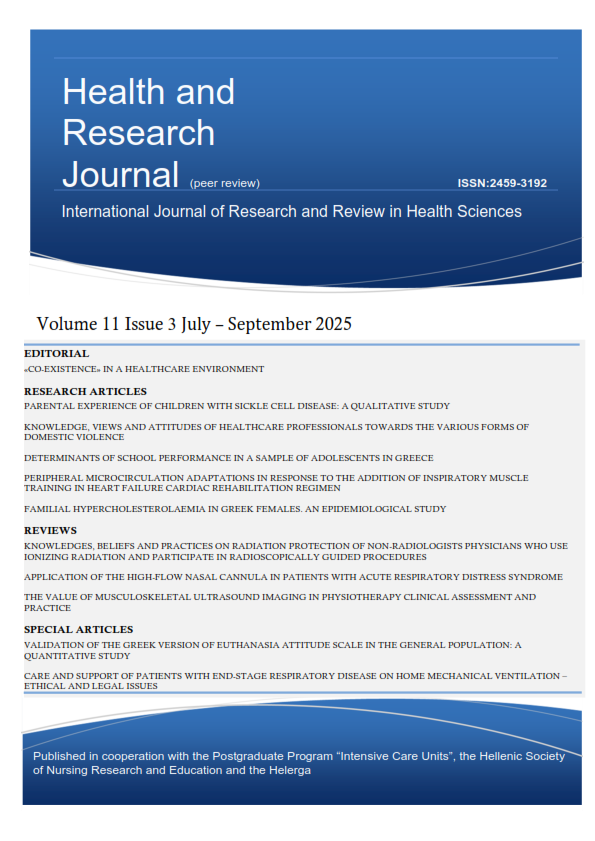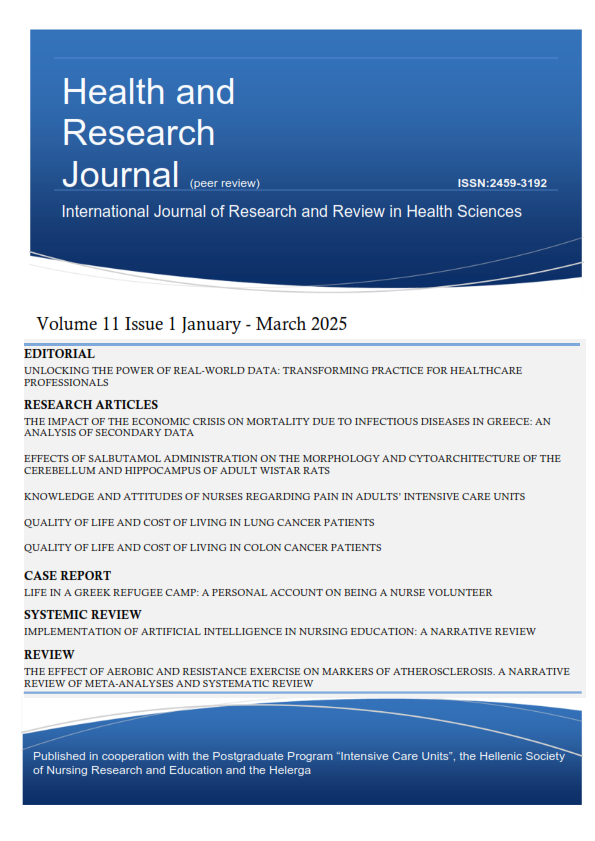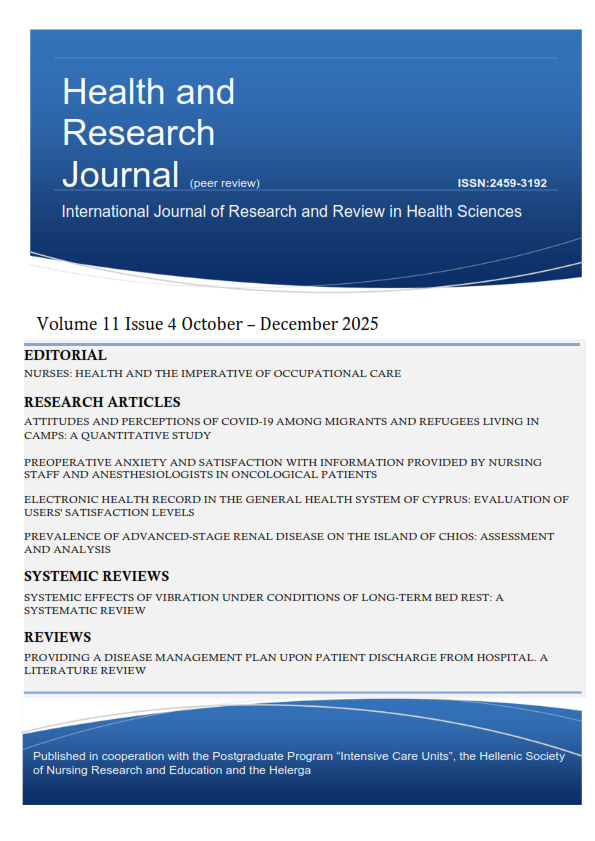Case-management for nursing care of patient with stroke: a cross-cultural critical reflective analysis

Abstract
Introduction: Stroke remains a heavy financial burden on health care systems around the world. Yet, health care reforms have called for sophisticated management systems in order to provide high-quality care on equal terms for the entire population within a cost-conscious environment.
Aim: The main aim of this discussion paper is to define and reflect cross-culturally on the merits of the Case-Management (CM) approach for contemporary stroke care delivery.
Methods: Critical reflective analysis was used for this paper’s needs, whereby readers are gradually introduced to skills of critical and reflective thinking. This can then be applied into a clinical context which may assist nurses to achieve a better understanding of their professional role within the complexities of contemporary health care delivery.
Discussion: An overview for stroke care differences between Greece and USA is provided using the following critical analysis components: Situation, Experience evaluated, Personal Reflections and Opportunities for Change.
Conclusions: CM in the USA aims to meet the urgent challenges of stroke care. CMs are health care professionals whose role is to serve as client advocates and to coordinate services whilst assuring financial and gate keeping functions as required. As these services are currently unavailable in Greece, despite adverse financial circumstances, efforts should be made to introduce a culturally adopted CM initiative for stroke care.
Article Details
- How to Cite
-
Theofanidis, D. (2016). Case-management for nursing care of patient with stroke: a cross-cultural critical reflective analysis. Health & Research Journal, 2(3), 178–189. https://doi.org/10.12681/healthresj.19703
- Section
- Special Articles
Copyright notice:
Authors retain copyright of their work and grant the Health and Research Journal the right of first publication.
License:
Articles are published under the Creative Commons Attribution 4.0 International License (CC BY 4.0). This license permits use, sharing, adaptation, distribution, and reproduction in any medium or format, including for commercial purposes, provided that appropriate credit is given to the author(s) and the original publication in this journal, a link to the license is provided, and any changes are indicated.
Attribution requirement:
Any reuse must include the article citation and DOI (where available), and indicate if changes were made.



